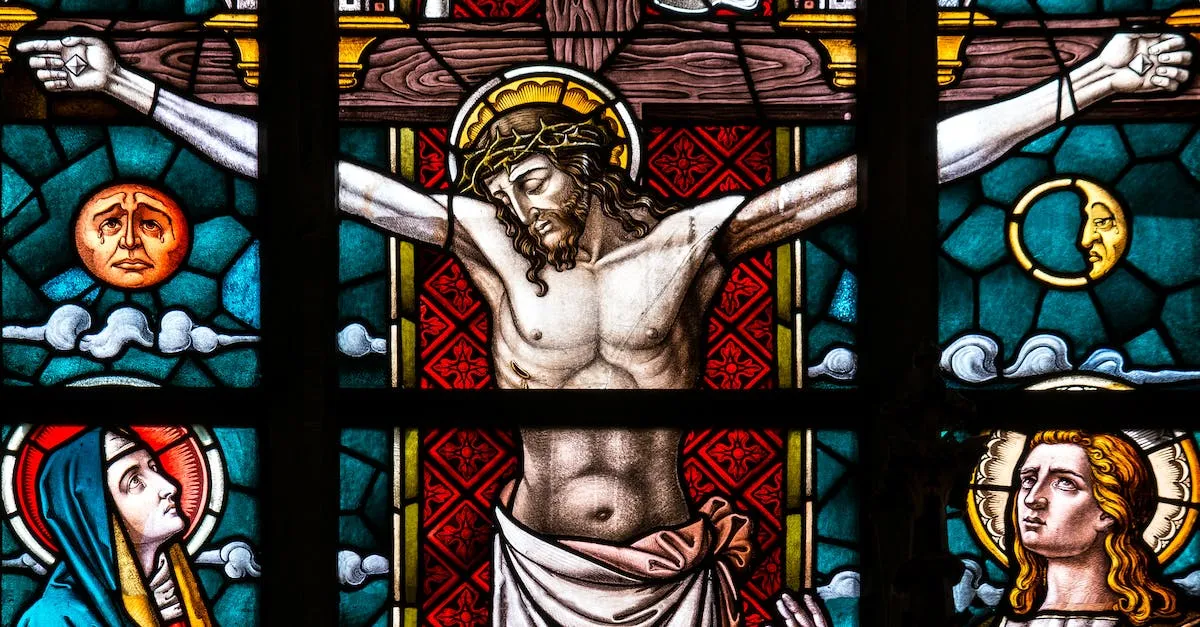Inside The International Christian Church: Is It A Cult?
In today’s world of countless religious denominations, it can be challenging to determine which churches are legitimate and which ones cross the line into “cult” territory.
If you’ve wondered about the International Christian Church (ICC) and whether it qualifies as a cult, read on.
If you’re short on time, here’s a quick answer:
The ICC exhibits many characteristics of a high-control religious cult including claims of absolute authority, isolation from outside influences, and excessive demands on members’ time and money. ž
While the ICC has toned down some of its more controversial practices in recent years, it still maintains many cult-like features that set off red flags for experts and ex-members.
Background on the International Christian Church
The International Christian Church (ICC) is a religious organization that has gained attention and sparked controversy in recent years. In order to understand the nature of the ICC and its practices, it is important to delve into its background.
When and how the ICC was founded
The ICC was founded in the United States in the 1970s by Kip McKean. McKean was a former minister in the Church of Christ and sought to establish a new movement that focused on evangelism and discipling.
The ICC quickly gained popularity and expanded its presence internationally, with congregations now found in numerous countries.
Leadership and organizational structure
The ICC operates under a hierarchical leadership structure. At the top is the World Sector Leader, followed by Regional Leaders, and then City Leaders.
This top-down structure allows for a centralized decision-making process and a strong sense of authority within the organization.
Critics argue that this structure can lead to a cult-like environment, as it gives excessive power to a few individuals.
Core beliefs and practices
The ICC identifies itself as a restorationist Christian movement, emphasizing the need to return to the practices and beliefs of the early Christian church. They hold to a literal interpretation of the Bible and prioritize evangelism and discipleship.
The ICC places great emphasis on personal accountability, with members often required to report their actions and decisions to their leaders.
It is important to note that while the ICC has faced criticism and accusations of being a cult, not all members necessarily view it in this way.
Some individuals find comfort and fulfillment in the strong sense of community and spiritual growth that the ICC provides.
However, it is crucial for anyone considering involvement with the ICC to research and evaluate its practices and beliefs before making a decision.
Cult-like Characteristics of the ICC
Claims of being the one true church
The International Christian Church (ICC) has been accused of exhibiting cult-like characteristics, with one prominent aspect being their claim of being the one true church.
Members of the ICC are often taught that their organization is the only path to salvation, while other Christian denominations are seen as false or inadequate.
This exclusivity can create an environment of superiority and a sense of being chosen, which may lead to members becoming isolated from friends and family who do not share their beliefs.
Control over members’ lives
The ICC is known for exerting a high level of control over its members’ lives. This control can manifest in various ways, such as dictating who members can associate with, what they can wear, and even who they can date or marry.
The leadership of the ICC often wields significant influence over the personal decisions and choices of its members, which can be seen as a form of manipulation and coercion. This level of control can greatly impact individuals’ autonomy and independence.
Isolation from outside influences
Another characteristic commonly associated with cults is the isolation of members from outside influences.
žIn the case of the ICC, this isolation can come in the form of discouraging members from engaging with individuals or organizations that are not affiliated with the church.
This isolation serves to create a sense of dependency on the ICC and its teachings, as members are less likely to be exposed to alternative perspectives or critical viewpoints. This lack of exposure can hinder personal growth and critical thinking.
Focus on recruitment and fundraising
The ICC places a strong emphasis on recruitment and fundraising, which can be seen as a defining characteristic of cult-like behavior.
Members are often encouraged to actively recruit new members and to donate significant amounts of money to the church.
This focus on recruitment and fundraising can create a high-pressure environment where individuals may feel compelled to constantly seek new converts or donate more money than they can afford.
This financial and social pressure can lead to a sense of manipulation and exploitation.

The ICC’s Reputation and Controversies
The International Christian Church (ICC) has faced its fair share of controversies and allegations, with some critics even going as far as calling it a cult.
Let’s take a closer look at some of the key issues that have surrounded the ICC over the years.
Accusations of being a cult from experts and ex-members
The ICC has been the subject of scrutiny and accusations of being a cult by both experts in the field and ex-members. These allegations are primarily based on the ICC’s hierarchical structure, strict control over members’ lives, and intense recruitment tactics.
It’s important to note, however, that not all experts agree on the cult label. The debate around the ICC’s status as a cult is ongoing, and opinions vary depending on individual experiences and perspectives.
Legal issues and investigations into misconduct
The ICC has also faced legal issues and investigations into allegations of misconduct. In some instances, former members have come forward with claims of emotional manipulation, financial exploitation, and even instances of abuse within the church.
These allegations have prompted investigations by authorities in some countries.
While not all allegations have been proven, the legal scrutiny has undoubtedly tarnished the ICC’s reputation and raised concerns among both current members and the general public.
Changes made in recent years to soften extreme practices
Over the years, the ICC has made efforts to address some of the concerns raised by critics and former members. In response to the allegations of being a cult, the ICC has implemented changes to soften some of its extreme practices.
For example, the ICC has emphasized the importance of individual autonomy and personal choice within the church, aiming to create a more inclusive and less controlling environment.
Additionally, the ICC has made efforts to improve transparency, accountability, and governance within its leadership structure.
While these changes have been seen as positive steps forward by some, critics argue that more needs to be done to ensure the well-being and autonomy of all members.
Warning Signs to Watch Out For
Pressure to cut ties with outside friends and family
One of the warning signs to watch out for in the International Christian Church (ICC) is the pressure to cut ties with outside friends and family. Cults often isolate their members from loved ones as a means of control.
In the case of the ICC, individuals may be encouraged to distance themselves from friends and family members who are not part of the church.
This can lead to a sense of isolation and dependence on the church for social support.
Encouraged to make large donations beyond one’s means
Another red flag in the ICC is the encouragement to make large donations beyond one’s means.
Cults often heavily rely on financial contributions from their members and may pressure individuals to give more money than they can afford.
This can result in financial strain and even exploitation. It is important to be cautious of any organization that puts excessive emphasis on financial contributions.
Leaders who demand unquestioning obedience
A key warning sign in cults is the presence of leaders who demand unquestioning obedience. In the ICC, leaders hold a significant amount of power and authority over their followers.
They may expect complete loyalty and obedience, discouraging any questioning or dissent. This can create a culture of fear and control, where individuals feel unable to express their own thoughts and concerns.
Feeling unable to freely leave or voice concerns
One of the most concerning warning signs in the ICC is the feeling of being unable to freely leave or voice concerns. Cults often employ tactics to keep their members from leaving, such as guilt-tripping or manipulation.
In the case of the ICC, individuals may fear consequences or backlash if they express doubts or consider leaving the church.
This can create a sense of entrapment and make it difficult for individuals to seek help or support from outside sources.
It is important to note that these warning signs are not definitive proof that the International Christian Church is a cult. However, they are indicators that individuals should be cautious and evaluate their experiences within the organization.
If you or someone you know is involved in the ICC or any other group that raises concerns, it is recommended to seek professional help and support.
Conclusion
While the International Christian Church has made efforts to reform and move away from its controversial past, many cult experts argue it still maintains a high level of control over members’ lives.
If you’re considering joining the ICC, proceed with extreme caution and keep your eyes open for red flags.
Healthy religious communities encourage critical thinking, accountability for leaders, and autonomy for members. There are many alternative churches that can provide spiritual growth without isolation and undue influence.
Trust your instincts, and don’t be afraid to ask questions to determine if a church is right for you.








